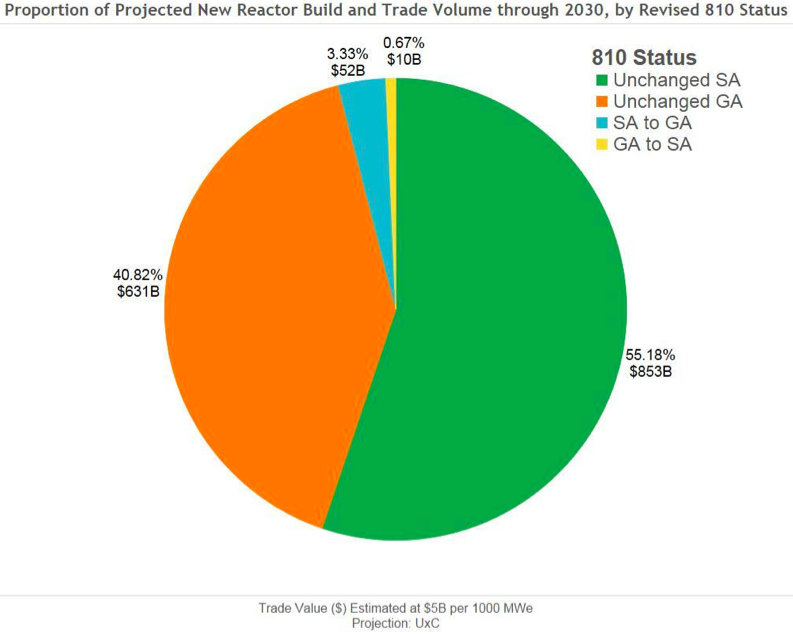On September 7, 2011, the U.S. Department of Energy (DOE) issued a notice of proposed rulemaking to propose the first comprehensive updating of regulations concerning Assistance to Foreign Atomic Energy Activities (10 CFR Part 810) since 1986. After a comment and review period, DOE published a supplemental notice of proposed rulemaking on August 2, 2013. The first public meeting on the supplemental notice was held on August 5 and then a second public meeting on November 15. Since I was in Washington, DC, last week, I had the chance to attend the second public meeting.
The issues discussed in the Nuclear Undone blog post earlier this week on nonproliferation versus nuclear trade were the same issues discussed at the public meeting. How can the government promote nuclear trade while meeting nonproliferation goals and obligations? Government officials from DOE, State Dept., Dept. of Commerce, and Nuclear Regulatory Commission gave presentations and answered questions. Present at the meeting were representatives from different U.S. nuclear companies and non-government organizations, such as the American Nuclear Society.
"Part 810" is a set of regulations that implements Section 57 b.(2) of the Atomic Energy Act 1954. In order for a U.S. entity to export nuclear or related technology, they must apply for a license through DOE. This process has been called "slow, opaque, and unpredictable." Industry officials claim that this it is one of the slowest and most involved export control processes in the world, and thus inhibits trade. Aside from the regulatory changes, DOE is planning to "fix the process and improve overall implementation," which includes developing an e-licensing system and creating a users guide. The goal is for the licensing process to take a maximum of 90 days.
These procedural improvements come in addition to the regulatory changes, including changes to the list of countries classified under Specific Authorization (SA) and General Authorization (GA). Licenses for exports going to specifically authorized countries require a more rigorous review than those going to generally authorized countries because of elevated proliferation risk. Usually countries that have a 123 Agreement with the United States are generally authorized.
The proposed rulemaking includes a reclassification of 80 countries to specific authorization because they have no 123 Agreement and little or no nuclear trade with the United States. Three countries, Ukraine, United Arab Emirates (UAE), and Kazakhstan, will be reclassified for general authorization. An economic impact study (pictured above) of this proposed reclassification shows that the general to specific authorization (GA to SA) category of countries will have a very small fraction of future U.S. nuclear trade (0.67%), and thus no economic impact. However, the study also shows that 55% of U.S. nuclear trade will still be with countries that are speficially authorized and need a more rigorous license review. In particular, China, India, and Russia have 123 Agreements with the United States but require specific authorization under Part 810. The nuclear industry is concerned about this and wants to propose an "intermediate" category between specific and general authorization, allowing for robust trade with major nuclear partners.
The general feel of the public meeting was that both the government and industry want to make the Part 810 export control license more transparent and robust. However, the industry's major concern is with how lengthy the process is , especially when a country is specifically authorized. You can read more about the Part 810 rulemaking and see slides and transcripts from the public meeting on the DOE/NNSA website. You can also learn more about the industry's concerns on the Nuclear Energy Institute website.
The public comment period to the proposed Part 810 rulemaking is open until November 29, 2013. Click here for more information.


 RSS Feed
RSS Feed

